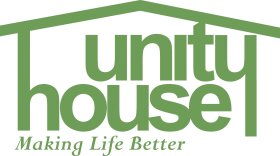A number of New York state assemblymembers recently called on the state to reverse funding cuts to the intellectual and developmental disability community. They say that even though funding is especially strained across the board because of COVID-19, the developmental disability community cannot afford the cuts.
Hudson Valley Democratic Assemblyman Tom Abinanti has long advocated for the developmental disability community.
“We have gone from benign neglect to active abandonment of people with disabilities,” Abinanti says. “And it’s all about money. It’s all about money.”
Abinanti, of Westchester County, describes the cuts he says have also occurred in years prior.
“The initial budget this year, as proposed by the executive branch, proposed cutting programs for people with disabilities and shifted a significant amount of money out of the Office of People with Developmental Disabilities into the Medicaid budget, then proposed cutting the Medicaid budget,” says Abinanti. “So it was away to cut services without leaving any fingerprints.”
A New York State Office for People With Developmental Disabilities spokeswoman, in a statement, says, in part, “The Budget enacted by the legislature for this fiscal year required savings, and the State chose to preserve critical services to individuals rather than fund empty beds. In addition, as a result of the federal failure to offset the state’s devastating revenue loss amounting to nearly $63 billion over four years, we also have had no choice but to temporarily hold back a portion of state funded payments.”
Democratic Assemblymember Aileen Gunther represents portions of Orange and Sullivan Counties.
“I hope that our words, again, do not fall on deaf ears in the executive branch, and even for our leaders both in the Assembly and in the Senate,” says Gunther.
Abinanti says the coronavirus pandemic exacerbates the isolation of people with disabilities, especially with state-imposed limits to visiting group homes and the like. Russell Snaith is a founding member of the New York Alliance for Developmental Disabilities, or NYADD, a group that launched in May in response to COVID and the need to advocate because of lockdowns and limits on family visitations.
“These cuts call for reductions in reimbursement to providers from 50 [percent] to 100 percent of their rate for days that individuals are hospitalized or when they visit their families and sleep over for weekends, holidays and vacations,” says Snaith. “These are therapeutic leaves. These are essential for the mental and emotional well-being of individuals — family continuity, roots, stability. When an individual’s hospitalized, there’s actually increase in expense to an agency, a provider because they’ve got to have somebody at the hospital round the clock to be by that individual’s bedside.”
Snaith says he understands the current tough fiscal times, but he says services for those with among the highest needs should not be targeted for budget cuts.
“The cut certainly serves to discourage home visits, family interaction and, in effect, isolates individuals,” Snaith says. “This is unethical at a minimum. And I’m saying that very clearly, it’s unethical at a minimum. So you take it from there and figure out where the maximum is.”
Snaith has a 24-year-old son in a group home on Long Island.
“We also must never prevent an essential family member from visiting their child, even during times of crisis. They must absolutely have equal standing as staff,” says Snaith, “If a staff member can be tested by a temperature check and answering a few questions, so should an essential family member.”
Republican Long Island Assemblymember Missy Miller says she and her colleagues are urging the state to reverse many of the funding cuts that took effect October 1.
“There are so many ways that these cuts impact our loved ones that, and, quite honestly, they are never a priority in this state, and that has to change,” Miller says.
Miller says she and Abinanti are working on legislation to allow residents in group homes or independent living environments to assign a family member as an essential person who could come and go as a staff member would. Republican Assemblyman Ed Ra also took part in the virtual press conference.
NYADD recently posted a digital billboard in Albany rotating three messages the week of Thanksgiving. One read “Cut the turkey, not the funding to special needs people.”







